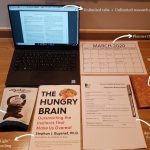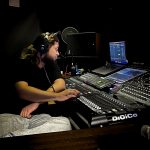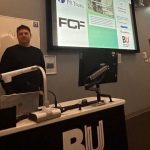I am studying MSc Nutrition and Behaviour and it is mandatory to do a 12-day placement as a part of the degree program. The great aspect of our course is the flexibility provided to us to choose where and what we wanted to do with our placement. I scored a place in the Nutrition department of the Royal Bournemouth Hospital. The department was open to accepting 2 trainees and the course supervisor elected suitable candidates based on the CVs submitted. I chose to do a clinical placement due to my background and future career goals in counselling. The placement was focused on diabetes self-management and comprised of on-site and off-site days, including clinic shadowing, device use training, survey development, designing education material and self-learning modules. It was a great learning experience and helped me understand the working of nutrition department in the NHS. Placements in a nutritional science degree does not have to be in a clinical setting – the possibilities are endless! I am aware of students doing their placements in charity organizations, food labs, research facilities, gyms, care homes, schools, farms, supermarkets and even ice cream shops!
During the journey of applying and being accepted for a placement, I learnt the following:
- Think about your personal career goals and decide on what exactly you want practical experience on before you approach any organization. MyCareerHub has great resources that are worth checking out.
- Your course supervisor and your placement coordinator are two important staff to reach out to. They can guide you towards a better placement experience. Especially, if you are an international student, your placement coordinator will help manage the technicalities of doing a placement in accordance to your visa status.
- Your course supervisor can guide you through what is expected from you during your placement. You might need to create a portfolio or submit a report at the end. Having all the necessary information beforehand will help you keep track of your activities during the placement to ensure that you are meeting your goals.
- Update your CV. Your CV is one of the tools you need to make a great first impression when you apply for a placement. BU offers many resources to help create and improve your CV. CV360 is a useful tool that I used to audit my CV.
- If you are approaching organizations for placements, it’s a good idea to treat it as if you are applying for a job. Keep it professional and demonstrate your skills and your knowledge about the organization and what inspires you about them. Show what you have to offer and how you can be an asset to the organization rather than just asking them for a placement.
Good Luck!


 5 reasons to pick Bournemouth as your study destination
5 reasons to pick Bournemouth as your study destination A Day in the Life of a Nutrition Postgraduate Student
A Day in the Life of a Nutrition Postgraduate Student Budgeting – A Student’s Financial Life-hacks
Budgeting – A Student’s Financial Life-hacks








